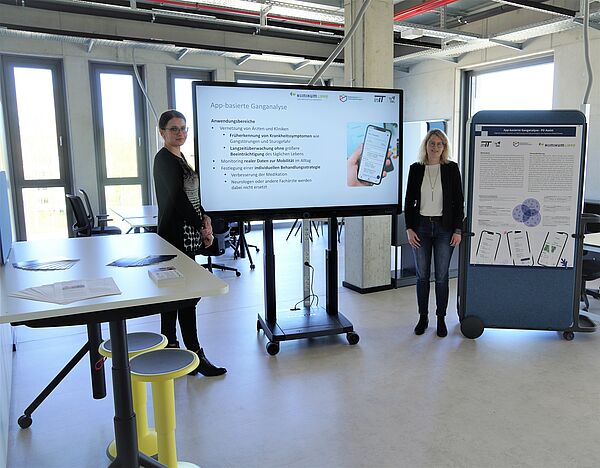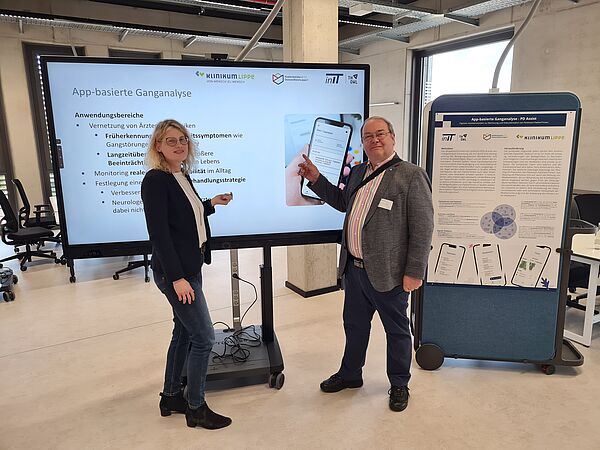After the official handover of the keys, the numerous guests took a gallery walk to get an overview of the innovative ideas already being implemented in Lemgo. The inIT also presented itself on the topic of Smart Health with two AI-supported app developments against the background of an idiopathic Parkinson's disease and a stroke.
Martyna Bator and Frauke Wiegräbe, research assistants at inIT, vividly explained how Artificial Intelligence (AI) for Mobile Health Systems is increasingly establishing itself as a core technology in the healthcare sector. The Discrete Systems working group, headed by Prof. Volker Lohweg, and the Mathematics and Authentication working group, headed by Prof. Helene Dörksen, work closely together on this range of topics.
Both applications have been developed in cooperation with the Lippe-Lemgo Clinic, Department of Neurology and Neurogeriatrics. The Parkinson's app records and documents physical activity and medication. For doctors, this digital tool is an effective and quality-assured option for long-term documentation, as well as monitoring "real life" data for early detection of motor problems and treatment complications.
The stroke app has been developed for doctors at the hospital with a view to providing the fastest possible initial treatment for stroke patients within a specified time unit. It provides information on medication or imaging procedures such as MRI or CT scans. In addition, initial diagnostic results and care measures are digitally recorded and added to the patient's file.
inIT scientist Frauke Wiegräbe reports happily: "During the opening event of the InnovationSPIN, together with my colleague Martyna Bator, I have already made the first new contacts and developed new creative ideas for possible future collaborations." The basic concept idea of InnovationSPIN as a new exchange platform for education, science and business was thus successfully implemented from the very first hour.



